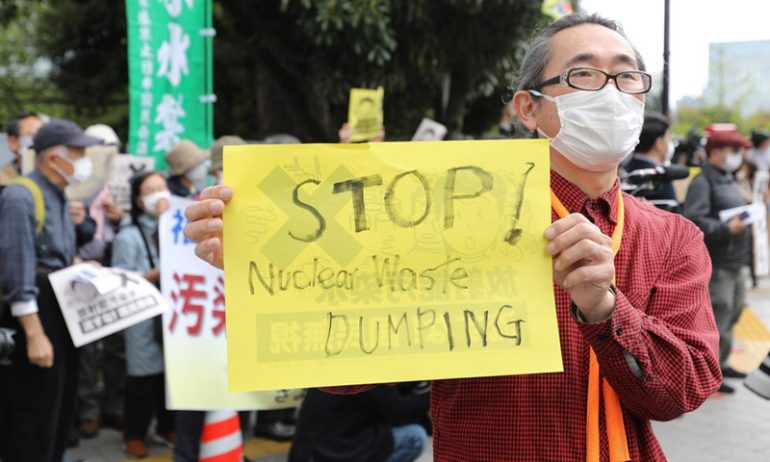
On 13 April, people in Japan’s capital Tokyo protested against the Japanese government’s decision to discharge radioactive wastewater into the sea from Fukushima Prefecture (Photo: Xinhua).
China has expressed serious concern over the Japanese government’s plans to deal with radioactive wastewater. The Japanese cabinet under Prime Minister Yoshihida Suga decided to divert water from the damaged nuclear reactor in Fukushima into the Pacific Ocean. This move is met with considerable resistance from Japan’s neighboring countries. Commerce Ministry spokesman Gao Feng said on Tuesday that China will keep a close watch on the dangers of aquatic products and assess their risks to the maritime economy.
The Japanese government works regardless of opposition at home and abroad. He said that he did not fully coordinate the move with neighboring countries or the international community, which has raised a lot of concern.
China and South Korea spoke strongly against Japan’s decision to discharge nuclear wastewater into the sea on Wednesday at the first meeting of the China-South Korean Dialogue on Maritime Affairs, which was conducted via video link. Both countries urged Japan to consult with international organizations and neighboring countries and deal with the wastewater issue carefully.
The Russian Foreign Ministry also issued a statement on Tuesday expressing its grave concern. It called for Japan to be transparent and inform the countries concerned about radiation exposure. Russia hopes that Japan will make its decision more clear and allow external monitoring of radiation.
Meanwhile, concerns about food safety are increasing among China’s seafood consumers. Although the scheme does not plan to begin discharging sewage for two years, seafood producers are already very concerned about the negative impact on their business in the future.
Chinese experts said that in future more countries and regions will raise concerns and strong opposition from the Japanese government, whose fatal decision is likely to have disastrous consequences for agriculture and fishery products as well as local employment, especially for fishermen.
A report on global fisheries and aquaculture in 2020 states that in addition to China, which may account for 14 percent of global fisheries production, countries such as Vietnam, Chile, Thailand, the United States and Canada may also be affected by Japan’s nuclear waste .

Reader. Organizer. General creator. Zombie fanatic. Alcohol advocate. Food junkie. Bacon ninja.





